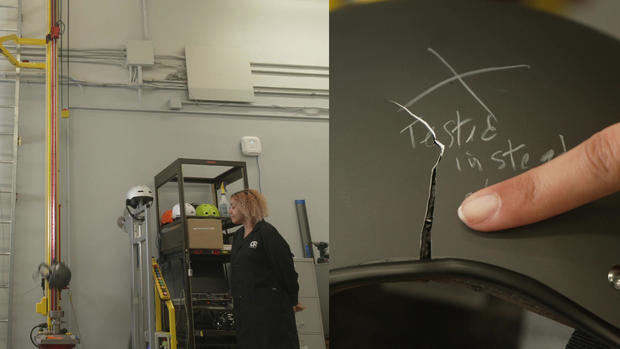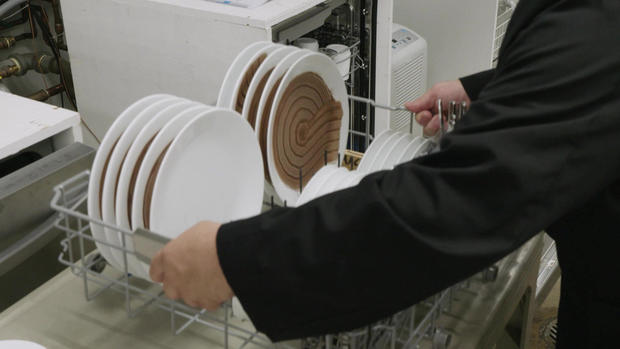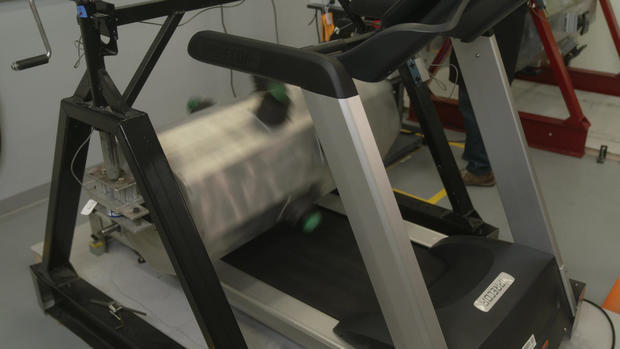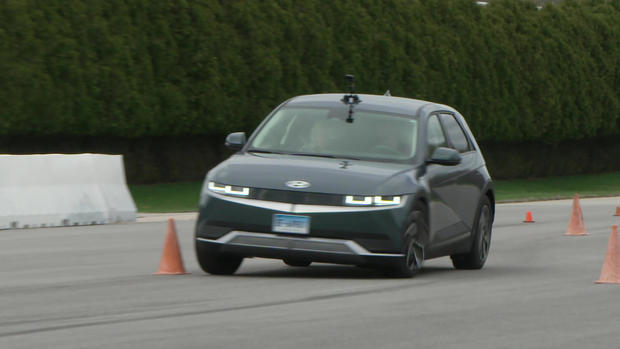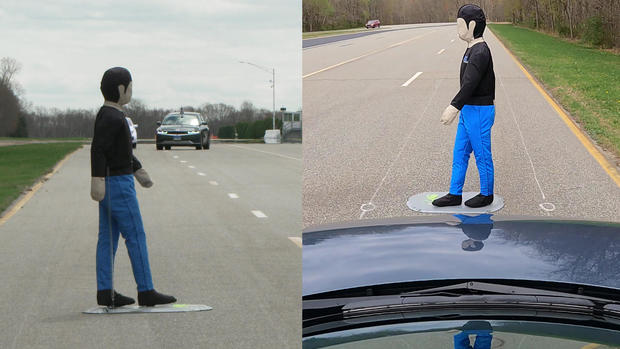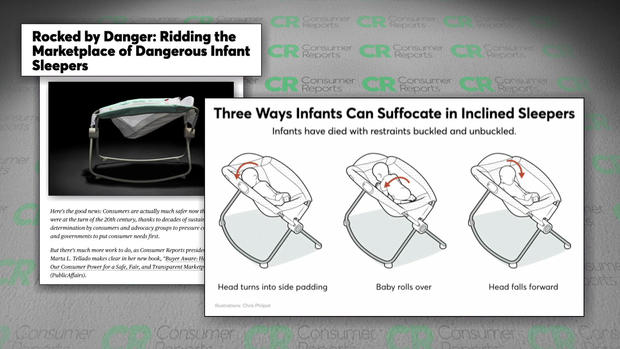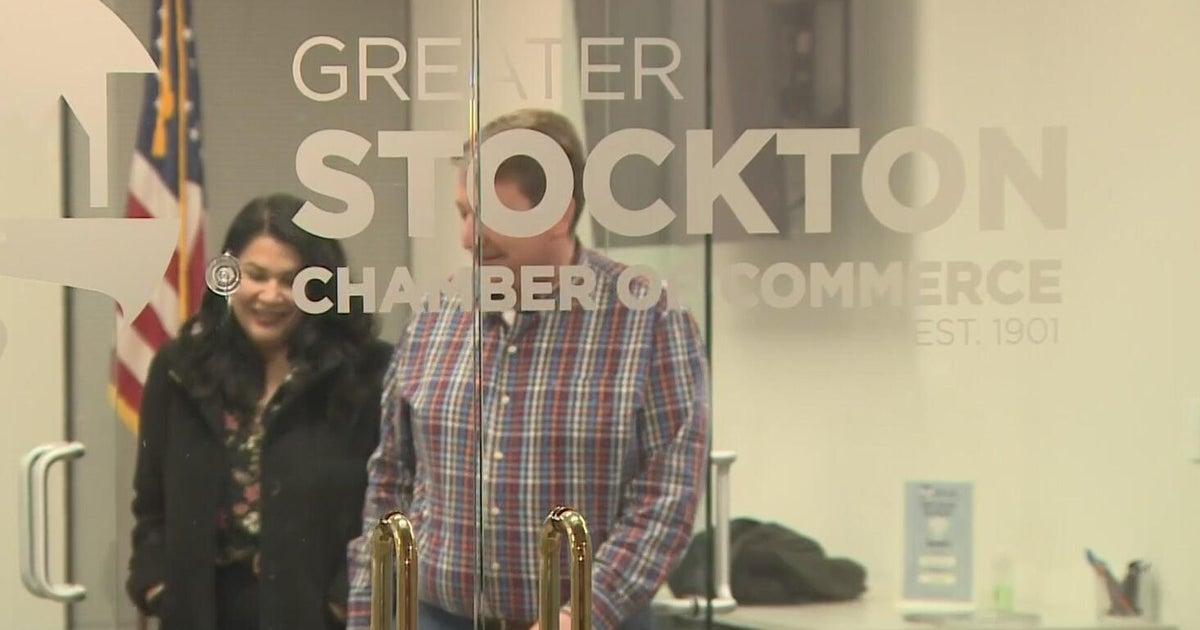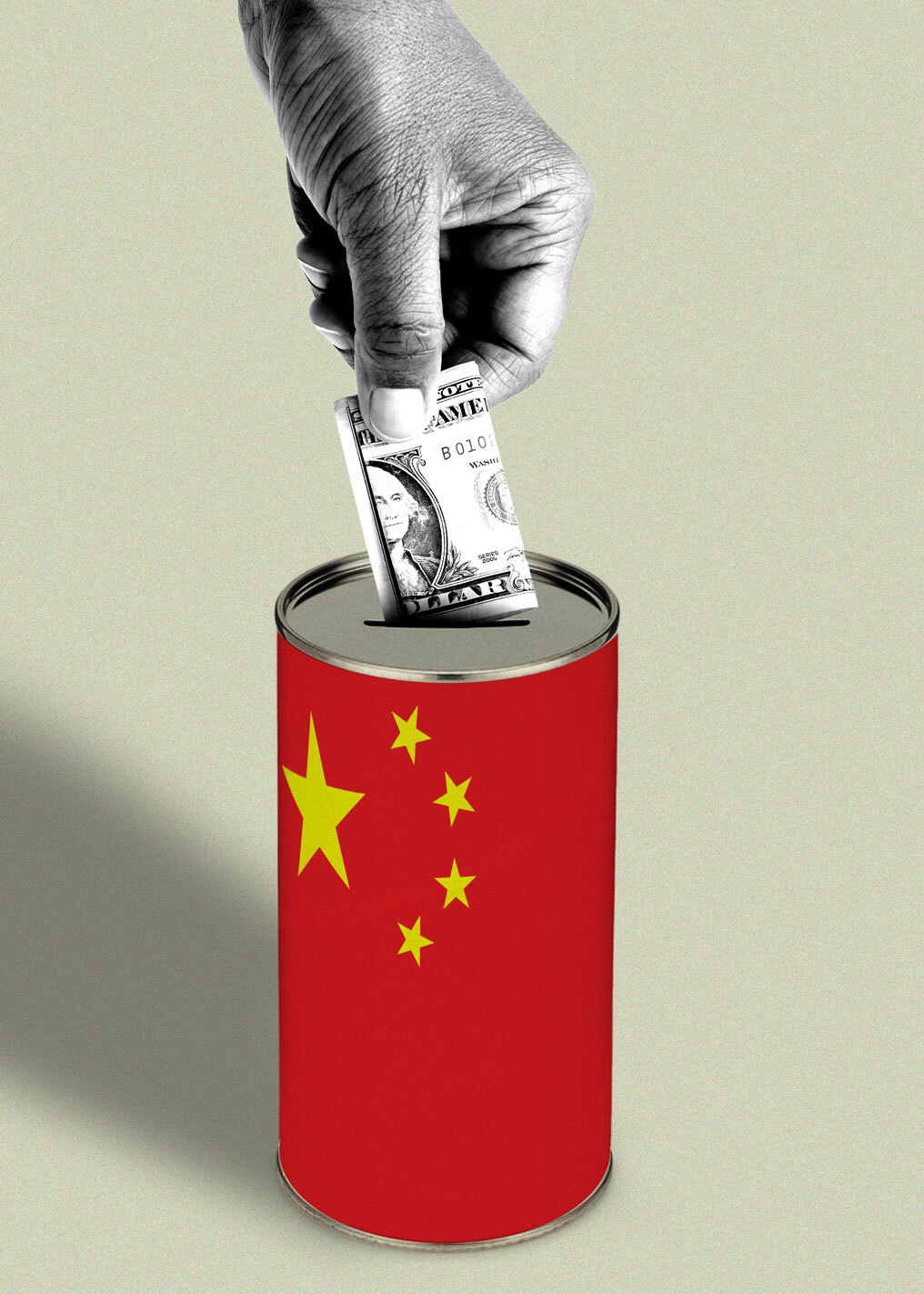Inside Consumer Reports
There's any number of websites filled with product reviews and recommendations, but really, which ones can you trust? If experience is any test of credibility, Consumer Reports, with its website and magazine, has been testing stuff longer than anyone.
CR, as it's known, has been surprising and sometimes outraging consumers for 87 years, testing more than 2,000 products annually for safety and effectiveness.
Their first issue, back in 1936, featured a cover story about milk. "If you recall there's grade A and grade B," said Marta Tellado, the president and CEO of Consumer Reports. "And at the time Consumer Reports asked, 'Well, what's the difference?' And there is no difference. You just pay more. But it's exactly the same."
In 1936 they found the higher price for grade A wasn't justified.
At their 60 labs, CR employs nearly 600 testers, journalists, scientists and investigators. "We test. We have engineers. We do the research. No one does what we do in a non-profit organization," said Tellado.
And that means, unlike most product-testing outfits (and there are several, like USA Today's Reviewed, The New York Times' Wirecutter, and New York Magazine's Strategist), CR doesn't make money through advertising or by endorsing products.
Most of their work is done in labs like the one at CR's headquarters in Yonkers, New York, where an impact test drops bike helmets to see which ones survive a crash, and which ones don't.
They actually have mosquitos sting volunteers to see which repellants work! They test refrigerators to see how cold they are; drills to see how "boring" they are; and toilets…
CR's annual testing budget runs well over $30 million, funded mostly by 6 million members who pay $30 to $59 a year to subscribe to the magazine or website. CR accepts no freebies from manufacturers; they buy every product they evaluate, to avoid any conflict of interest.
Leigh Druckenmiller is Mr. Dishwasher, who tests dozens of the machines with his own impossible-to-clean swirly gunky sauce. He showed dishes that had been washed for two hours. "They're cleaner than before, but as you see you wouldn't necessarily want to eat off them," he said.
He doesn't expect any of the dishwashers to clean perfectly. The test measures which ones scrub the best.
Among the contraptions CR invented to evaluate products: a mechanical sock tester used in the 1940s to test the durability of socks. Another gizmo, with rubber "feet," was created more recently to evaluate exercise treadmills without driving CR's staff to an early grave by having them run for 25 hours, to simulate a half a year's treadmill use.
To reach a younger audience, Consumer Reports now has channels on YouTube and TikTok, where Rich Handel (and his Brooklyn accent) has become a star. His viewers, numbering in the millions, follow his advice about washing machines. "Yeah, imagine that! Laundry!" he laughed. "Laundry's popular!"
Because CR's testers like Handel are beholden to no company, they're unafraid of taking on a popular and lucrative product. For example, fabric softener: "Never use fabric softener," he told his social media audience. "It's a waste of money. Not only can it irritate sensitive skin, it can leave a layer of residue on your clothes, and reduce the absorption of your towels. Save your money!"
And nowhere can you save more money than through CR's car reviews. Jake Fisher, the head of auto testing, said, "Certainly the car companies, they want to do well in our testing because they're going to sell more cars if it's a car that does well in our tests."
On Consumer Reports' six-mile-long auto test track in Connecticut, Fisher demonstrated a car's "emergency handling."
Consumer Reports can make or break a new car, or a new technology. Fisher showed how a car's crash avoidance system can kick in when, for example, a distracted driver approaches a pedestrian. The cars hits the brakes by itself.
Fisher said that it's because of CR that many vehicles on the road today come with a crash avoidance system. "There is no regulation to say that cars need to have this technology," Fisher said. "However, we have communicated to the car companies that it affects our score. And because of that, just a few years ago around 30% of vehicles had it standard; now it's around 85%. Because they're reacting to us. In some ways we're almost a de facto regulator in that way."
CR is so influential that when it comes to cars, even Elon Musk listens – and puts in a call to CR himself. "When they launched the Tesla Model 3, I talked for 45 minutes with Elon Musk at the time," said Fisher. "The brakes didn't perform very well in our tests. And we talked it through. He understood what the problem was. And they actually did an over-the-air update within the week that actually improved brake performance, and consumers were going to have cars that stopped better because of that."
Consumer Reports spends over $2 million a year to purchase around 50 cars and trucks. And as Jen Stockburger, the operations manager at the test track, revealed, they buy all those vehicles in secret. "We go in, much like every consumer would, and only at the very end of the transaction do the dealers know it's for Consumer Reports," she said. "The dealer will say, 'If I'd known you were from Consumer Reports I would've treated you differently.' I say, 'You'd think you wanna treat all your customers this well!'"
One of CR's most consequential investigations involved the Fisher-Price Rock 'n Play Sleeper. It was CR that revealed the link between the deaths and the Rock 'n Play. The angle of the sleeper can allow infants to roll over, or fall forward, and suffocate.
Tellado said, "It wasn't until we stepped in when the government inadvertently shared with us data that showed us that there was that link."
The U.S. government knew the sleeper was problematic, but left it on the market for years because, as CR discovered, there was a very anti-consumer clause in the Consumer Product Safety Act meant to protect a company's "reputation." Tellado said, "That says you have to ask the company for permission to disclose that kind of data. So, we went public with the story, and within days there was a national recall. Nearly five million infant sleepers were taken off the market."
The sleeper has been tied to nearly 100 infant deaths.
But the threat isn't over; the recall hasn't stopped the sale of used Rock 'n Play sleepers on the second-hand market. "Recalls are an imperfect way to get things off the market," Tellado said.
The people behind Consumer Reports are not just investigators; they're advocates, watchdogs, change agents.
Where will CR go next? Here's our scoop: an investigation into the range claims of electric vehicles. Elon musk, hold on to your hat…
For more info:
Story produced by Richard Buddenhagen. Editor: George Pozderec.

